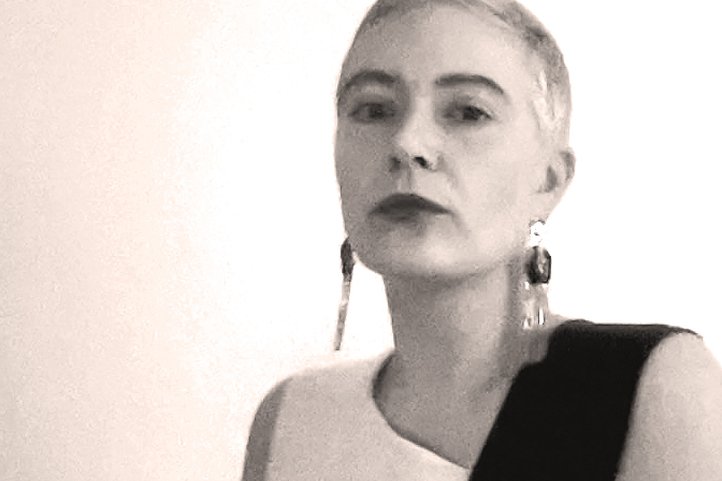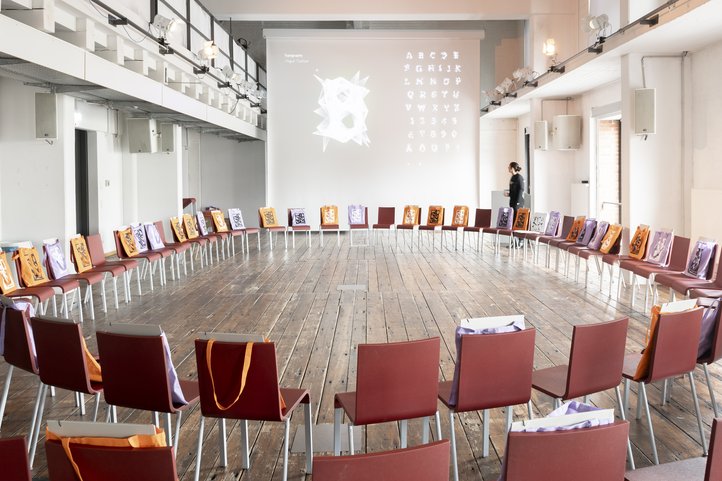Consequently positioned in between disciplines, fields and languages Marie Glassl aims to connect dramaturgy, curation and writing through the notion of translationwith a particular focus on materialities of language and early Italian feminist tradition.
She is program director of DIAPHANES literature and editor of aktion_fiktion a plurilingual literary series focused on the connection of poetic and performative interventions and translates poetry and political theory from English and Italian, currently texts by Ines & Eyal Weizman, Alice Ceresa, Alenka Zupančič and NourbeSe Philip.
Marie is artistic director of the ongoing exhibition and research project On Wasted Grounds and co-editor of DIAPHANES magazine, where she also presents a series of interviews with current practitioners from the arts and discourse. She has participated in lectures and festivals between the arts and sciences with Bolzano Danza, Akademie der Künste Berlin, Royal College of Arts London, Migros Museum Zürich. She is founding member of the Institute for Performance and Film Expandedand collaborates closely with interdisciplinary artists like Constanza Macras, Emma Waltraud Howes and Miller de Nobili.
ON WASTED GROUNDS
A project by DIAPHANES Berlin & futuretopics Zurich | Artistic direction: Marie Glassl
»Deserts are we, wastelands. The desert, the experiment of ourselves, is our unique chance for all the combinations deposited in us.« — Gilles Deleuze/Claire Parnet, Dialogues.
The ongoing exhibition and research project On Wasted Grounds wants to survey social, ecological, or aesthetic wastelands, trace areas ravaged by war and violence, explore the ruins of political and ideological world orders, revisit the trash heaps of capitalist consumption, material overproduction or mental overuse. Through performances, literary and critical interventions, discussions and talks, we want to invite artists, writers, and thinkers to describe and process these phenomena together – to invent re-imaginings of an abandonment.
How can we open a space for unknown, more sustainable beginnings where there seems to be nothing but desolation; where the foundations of civilisation turn fragile, living spaces are endlessly and repeatedly destroyed by wars and ecological crisis and the grounds of our life and knowledge are eroded? How can a reading and inventory of what has been destroyed, a cartography of lost terrain, open new access to previously unknown foundations instead of merely romanticising mournings of the past? How can territorial policies based on the exploitation of all grounds be overcome and new ways of communality come into view?
At a time when humanity is becoming increasingly aware of its finite resources it seems particularly necessary to question the precarious foundations of life from multiple perspectives, to use diverse forms and approaches to expose the entanglements of inner and outer emptiness as well as the mutual dependency of aesthetic and ethical experiences. Our world seems to be standing on material, intellectual and imaginary wasted grounds. Wasted grounds describe discarded, destroyed, or squandered resources, the residues and leftovers, the pillars and matrices of our being – but also the carriers and foundations of our thinking and language, the forgotten sources or unfulfilled promises.
Thinking and acting On Wasted Grounds always refers to an un-grounding: the ruins, the rubble, the waste and rags on which we stand, and from which we must inevitably start. Every future must emerge on these grounds and the sites of their sedimented history; but also break the phantasmagoric cycle of ever recurring point zeros and continuous colonisations of terre incognite.
Starting from this field of possibilities our questions and objectives target global phenomena that necessarily transcend topological and disciplinary boundaries, interweaving scientific and fictional narratives, interventions from art and research, architectural and technological visions, critical essays and speculative cosmologies and imaginations.

